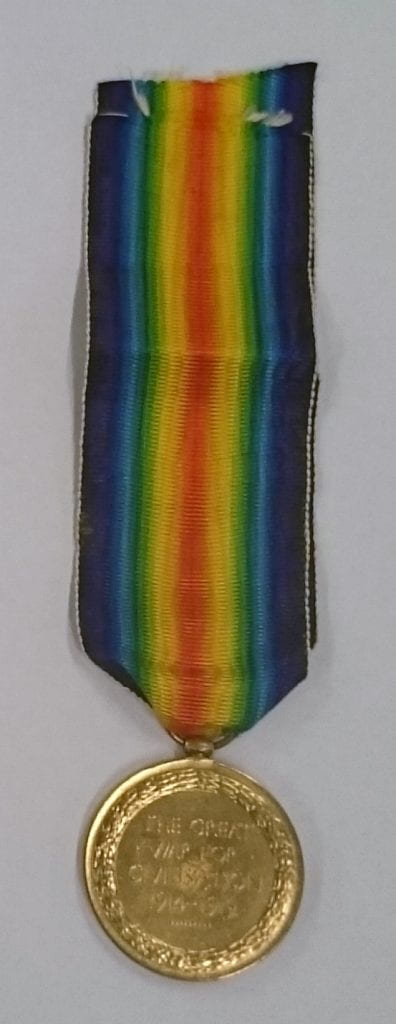Among the Cranstone Papers are eight letters Emily Harris’s nephew Otto Weyergang wrote to his sister Gretchen Briant and mother Mary Weyergang while serving with the New Zealand Army 1917-18. At the time of the letters Mary was about to move to Nelson to live with her sister Emily. Neither Otto nor Gretchen was sure the move was a good idea, but the letters don’t say why.
Otto was killed in action in France 4 June 1918, about a month after arriving on the frontlines near the village of Colincamps. He was 40, a Private in the 32nd Reinforcement sent overseas in the later years of the war. Otto was an orchardist in Hawke’s Bay before signing up, also a keen amateur photographer and an actor in local theatre productions. He was unmarried and the letters show he was close to his mother and sister, writing regularly from military camps at Trentham and Tauherenikau before embarking in November 1917 for England. The 32nd Reinforcement sailed via Panama (the United States had entered the war in 1917), Newport News and Norfolk (Virginia), Halifax and Liverpool. The first weeks at Sling Camp on Salisbury Plain were marked by intense cold and medical fatalities. Otto reported that 130 men in his embarkation had died soon after reaching England, many from measles and meningitis. Otto himself was among those in isolation and was later hospitalised. Otto Weyergang pulled through his encounter with infectious disease and began training for France with D Company of the Canterbury Battalion as winter turned into spring. The family eye for botanical and horticultural detail is on show in his letters:
Sling 21 April 1918
The Spring is exceptionally early here this year. The trees are all coming into leaf and the hawthorn is out in bloom also have seen many plums fully out. Yesterday when out shooting saw the first violets, pretty little things with plenty perfume.
Somewhere, 9 May 1918
I spent my draft leave in London seeing the sights. […] Everything was beginning to look grand in England and am sorry to leave in a way. I saw some fine beds of tulips here, in bloom with stems 15 to 18 inches long. This is as much as I can write at present. With love to you and Aunt Emily, Otto Weyergang, 63802, N.Z.R.
One of Otto’s letters contains an eerie echo of a letter his grandmother Sarah Harris wrote to her father and sisters in Plymouth, England, telling them of her newborn baby’s death at sea.
Sling Camp 18 Jan 1918
After an uneventful trip of 49 days we finally arrive at Liverpool. […] Three days from England we had our first and only death, one of the specialists dying from spinal meningitis, only ill twelve hours. He was buried at sea, and I can imagine few sadder ceremonies. The service is read, the last post sounded, there’s a splash and the ship passes on.
Here is Sarah, her first letter from New Plymouth, NZ, in May 1841:
The second night my dear husband was sitting by my bed holding my hand. We were both quiet, for some time there when I said, There, did you not hear? They are consigning our darling to the deep. No, he said, they are not, the baby is laying on the bed the nurse sleeps in.
Dr Henry Weekes, the surgeon aboard the William Bryan, recorded in his diary of the voyage: Sat 13 Mar: ‘The infant was dropt into the sea this morning at six, sewn up in a piece of canvas.’


Lead writer: Betty Davis
Research support: Michele Leggott, Makyla Curtis